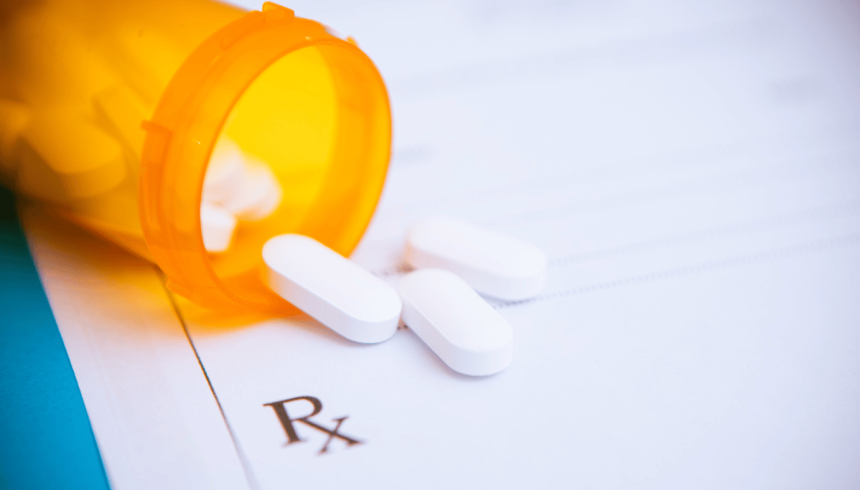Look, I recently turned 40 and am completely out of shape, have type 2 diabetes, and have to use a CPAP for sleep apnea.
There are a lot of reasons that go into my struggles with health, the main one being that I suffered a traumatic brain injury during a car wreck one week after graduating from college in Washington, D.C.

Police and neurologists both said after the accident that I should have died or at a minimum ended up in a vegetative state. Luckily, after three months of being in comatose and a lot of physical therapy, I was able to return home to the Mississippi Gulf Coast.
Overall, my story is one of success – thanks in large part to the medical staff in D.C., the rehabilitation staff in Jackson (all coastal rehab facilities had been wiped out by Hurricane Katrina at this time), and both of my parents. I was able to come out of it all on the other side.
Unfortunately, not everyone can say the same. And to add the rotten cherry on top, having the giant that is the healthcare industry and its toxic relationship with big pharmaceuticals is something that completely goes against our idea of what human beings deserve.
I know we live in the best capitalist democracy ever created, and the U.S. is the first country ever founded on ideas – not hierarchy, war, or mandatory religion. However, one of the large problems with American society today is the overarching ode to capitalism when it comes to health and as I have said in radio interviews before, healthcare policy should serve as a way to build your economic revenue, not take advantage of people’s lives because of cost benefits.
For example, my primary care doctor recently prescribed me Ozempic, which as you may know through recent news headlines is a medicine for type 2 diabetes that many a TikTok stars have also been using for weight loss.
After providing me with a sample of the medication, I went to get the prescription filled at the local pharmacy. The pharmacist, who does a phenomenal job, reluctantly told me that the bill was going to be $1,000.
A thousand dollars! For a few pills?
I asked if the health insurance company provided any funding for my prescription. After extended research from the local pharmacist, I was informed that my insurance carrier did not contribute any funds to Ozempic prescriptions.
Even after I mentioned my A1C (also known as the hemoglobin A1C or HbA1c levels that test blood sugars over three months for diabetes), the insurance company half-heartedly told me that they would look into my health documents and get back to me.
Now, whether they actually get back to me or not, I am fortunate enough to be able to cut the check for the prescription. Not to say that it didn’t hurt, but this medicine is vital for me to stay alive, so I did it.
But some people can’t do that, and that’s where this whole thing is messed up.
In the U.S., nearly 12 percent of the population has diabetes – not to mention all the people suffering from cancer, COVID-19, and other diseases that could affect one’s long-term care. In 2018, the CDC reported that 51.8 percent of U.S. adults had at least one chronic condition and 27.2 percent had multiple chronic conditions.
So, that brings me to the question of why do we have this prescription drug problem when we are a nation that values and builds our foundation on that of life? Or at least we say that’s what we stand for here in America.
According to PhRMA, one of the leading institutes on medical insurance and prescription drug costs, the prices health plans paid for brand medicines increased year-over-year by an average of just one percent.
It sure doesn’t feel that way for patients, though.
The reason is that insurers and pharmacy benefit managers have increasingly shifted more healthcare costs to patients through high deductibles and coinsurance. For services like hospital stays and doctor visits, health plans routinely share the negotiated prices they receive with patients. When it comes to lifesaving medicines, that’s often not the case.
You would think the federal government – or even the state government as Mississippi continues to suffer from a health crisis – would want to keep people in great health, but according to the Health & Human Services Agency, “All of virtually all new drugs approved for sale by the FDA from 2014 benefitted significantly from government grants or research subsidies in either the preclinical or clinical stages of development.”
Once it’s all said and done, insurance barriers and high deductibles flood lifesaving costs onto patients rather than groceries or other taxes needed to provide for their families. To fix our healthcare system, we need to have a deep discussion about the problems patients face accessing prescription drugs and the people in charge of healthcare spending.
And I look forward to being part of that conversation.
The views expressed by contributors are their own and not the views of SuperTalk Mississippi Media.







